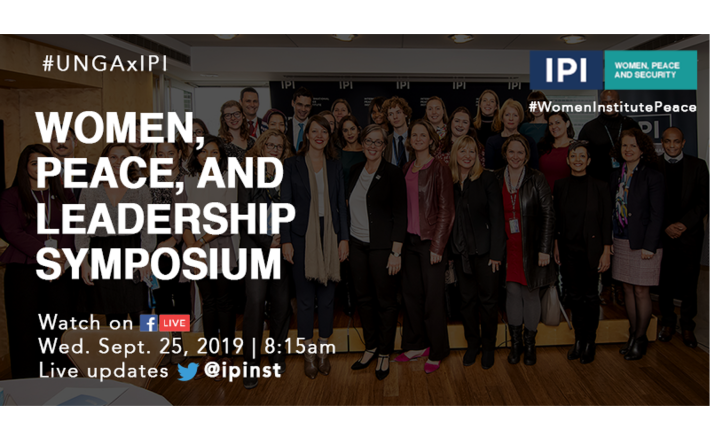Side Event 74th UNGA: Advancing women’s roles and rights amid global challenges
IPI, 777 United Nations Plaza, New York
For decades, governments, civil society, and the United Nations have recognized that women’s leadership and women’s status are inextricably linked with conflict prevention and conflict resolution. Indeed, women’s roles and rights can be seen as a litmus test of a community’s resilience. The women, peace, and security (WPS) agenda has been institutionalized internationally, regionally, and nationally. More than 70 countries have national actions plans on WPS (NAPs), and numerous countries have WPS envoys and ambassadors at the national level. The African Union, NATO, and UN all have special representatives or special envoys on various aspects of the WPS agenda. New regional networks of women mediators are being established with the goal of increasing women’s meaningful engagement in peace processes. The UN Security Council has, to date, adopted nine dedicated resolutions on WPS and has established an Informal Expert Group to receive timely information on WPS and analysis of individual conflict situations.
Yet despite these commitments, by many indicators the status of women’s roles and rights globally are under threat. In conflict resolution processes, mediators and negotiators are rarely women, and women’s rights are insufficiently reflected in agreements. In the multilateral system itself, women’s rights are increasingly the focus of debate in venues from the Commission on the Status of Women to the UN Security Council.
For further information, please click here.
